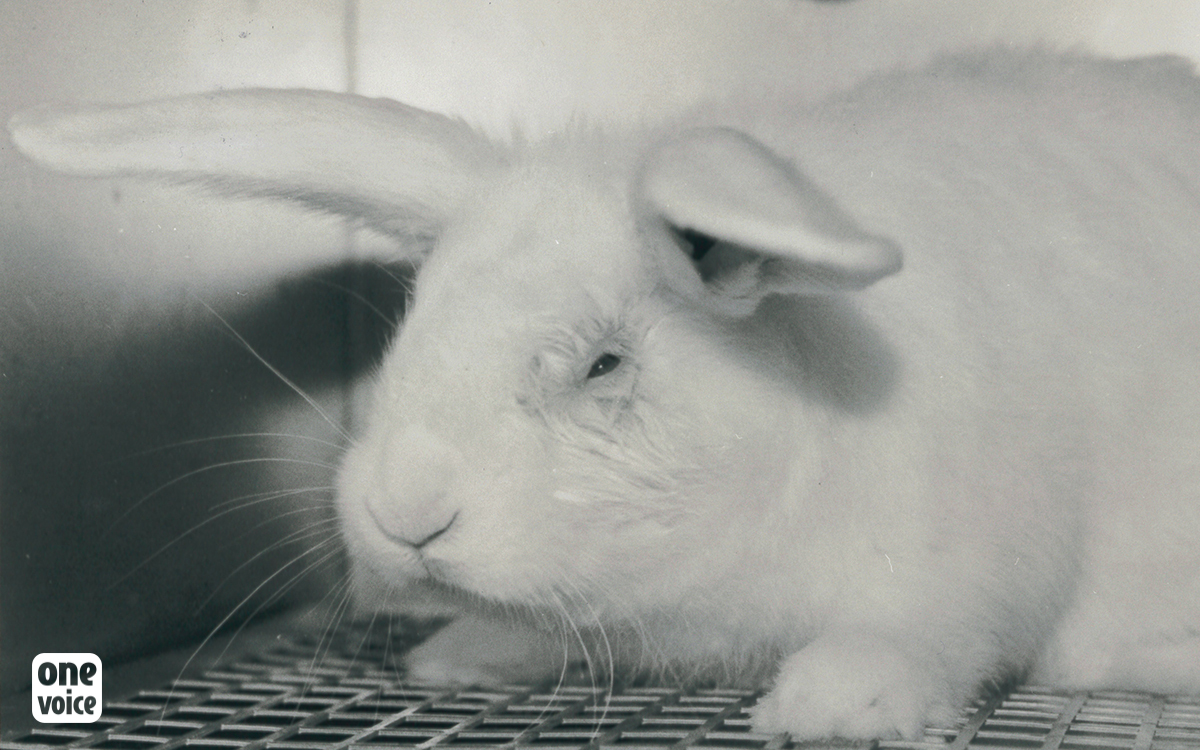

An urgent reform of ethical committees in animal testing is needed
While we have been told for years that going through ethical committees is a guarantee of compliance with regulations, the Comité national de réflexion éthique sur l’expérimentation animale (CNREEA) [National Committee for Ethical Reflection on Animal Experimentation] has recently ruled that these committees do not have the means to function correctly. Its recommendations, which are interesting, do not go far enough. One Voice has written to CNREEA’s President to request a more ambitious reform.
On 8 April, the CNREEA submitted a notice regarding the conditions for approval for the comités d’éthique en expérimentation animale (CEEA) [Ethical Committees in Animal Experimentation]. This is great when we know that the 130 French CEEAs have not been in agreement since 2013 and that their operation does not allow compliance with the requirements for impartiality and transparency provided for by the regulations. We are almost surprised that the Ministry of Research still uses them today as an alibi to justify projects that involve electric shocks and forced swimming to be authorised.
Unfortunately, CNREEA’s notice remains timid on points as important as the make-up of the committees, the increase in participation of those who are not involved in animal testing, and committees’ independence regarding the establishments whose projects they assess. One Voice has therefore addressed an open letter to Pierre Mormède, CNREEA’s President, to call for a more ambitious reform of ethical committees.
Opinions on the CEEAs
CNREEA’s recommendations on ethical committees predominantly concern financial and logistical means: member training and ‘mission letters’ allow them to carry out evaluations of their working time, the increase in the number of members and regular participation in evaluations, but also material and logistical means necessary for basic operation.
Up to this point, the propositions seem to us to be completely reasonable and welcome, and it seems to be appropriate to thank the CNREEA for this. The major limit of its recommendations is rather what has not been addressed here, namely the make-up of the committees and the function of the evaluations themselves.
CEEA limits
Ethical Committees in Animal Experimentation (CEEA) clearly appear to be lacking when we compare them with their equivalent for research involving human beings: the Comités de protection des personnes (CPP) [Committees for People’s Protection].
CEEAs have a minimum composition of five people, of which four are directly involved in animal testing, while the fifth does not have to prove they have any expertise. CPPs are comprised of twenty-eight people, of which half represent patient and specialist associations such as sociology and law, but also ethics – a speciality which is completely absent from ‘ethics’ committees in animal experimentation.
Furthermore, a file that must go through a CPP is randomly submitted to one of the 38 CPPs in France, which guarantees a certain impartiality in the rulings implemented. On the other hand, a file that must go through a CEEA is submitted to the committee linked to the establishment that is presenting the project – which means that there are currently around 130 CEEAs in France, a number ten times higher than the European average, which is far from a guarantee of independence and harmony in the operation of committees.
The reform is urgent
If CNREEA’s notice is implemented as it stands, the ethical committees in animal experimentation will begin a change in operations involving significant investment. It would therefore then be difficult to move towards more ambitious reforms for several years.
Hence our request to envisage a reform inspired by the CPP model from now on. A request which is not alone, since it is also part of the programme from the Parti Animaliste [Animalist Party] and propositions from the Engagement Animaux 2022 campaign, which we participated in.
This will involve a bigger change but would at least make it possible to reach the objective set by European regulations and by the Animal Experimentation Ethics Charter: the impartiality and independence of ethics committees, moving towards better control in animal testing while waiting for it to be abolished.
To find out more: a brief history
While the CNREEA left no trace over the course of its first ten years of existence (2005-2014) outside of a national charter on the ‘ethics’ of animal experimentation, the arrival of the European Directive in 2013 seems to have motivated some work (listed on the Ministry of Research’s website). In particular, activity seems more sustained since 2019 with the appointment of new members, presided by Pierre Mormède: the 2020 summary mentions four meetings throughout the year (instead of two in the previous years), several notices issued in 2021, and other notices in progress. The next meeting will take place in 2024 – we will fight so that One Voice can have a place in this future committee.
Translated from the French by Joely Justice